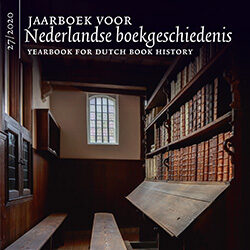Kennisbank
Nog nooit werd er zoveel gelezen: Democratisering in de Nederlandse boekenwereld van de late jaren zestig tot de late jaren zeventig

This article discusses the attempts to democratise Dutch book culture in the late 1960s and the early 1970s. Insights from the history of books, from literary studies and from cultural policy studies are brought together, for a better understanding of the influence that authors can have on book policies and on book market developments.
Three definitions of democratisation in the 1960s and 1970s are discussed. Firstly, democratisation functioned as a poetical metaphor: influential Dutch essayist Paul Rodenko introduced the terms ‘democratisation of the word’ and ‘democratisation of poetry’ as principles that set avant-garde poetry apart from older literary forms. The ‘democratisation of poetry’ in particular – the idea that all subjects and words could be poetic material, whether they be lofty or low – played a considerable role in discussions about mid-20th-century Dutch literature. The second definition of democratisation emphasised the growing importance of participation in policy and political concerns. From the late 1960s onwards, Dutch students, artists, and other groups in society demanded a voice in the policies they were subjected to. In the third place, democratisation was about making literature better accessible, especially for adult members of the working class and working class youth.
An important institution for setting this third type of democratisation in motion was the Stichting Collectieve Propaganda van het Nederlandse Boek (CPNB, the Organization for the Collective Promotion of the Dutch Book). In the mid sixties, CPNB developed a more popular style of promoting literature to the greater public, jumping on the bandwagon of the upcoming pop and television culture. Many publishers in these years embraced this type of democratisation too. In the course of the 1970s, a growing number of left-leaning authors began to problematise this tendency, which they considered as a cover-up for a further commercialisation the literary field. They feared that this popularisation strategy could be fatal for smaller publishing companies that brought less easily marketable work. The early 1980s saw a new focus in the CPNB policy: from then on, the CPNB in the yearly Dutch Book Week focused less on non-literary media and popular culture; it tried to present the written literary word in an appealing way.
Onderwerpen: 1900-2000 populaire cultuur literaire wereld
Auteur: dr. Laurens Ham

